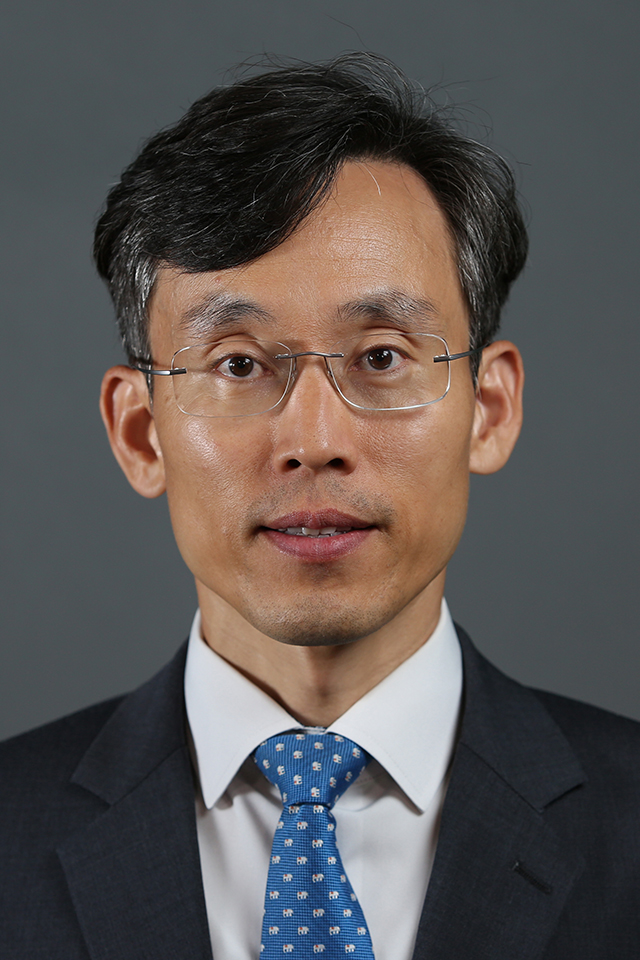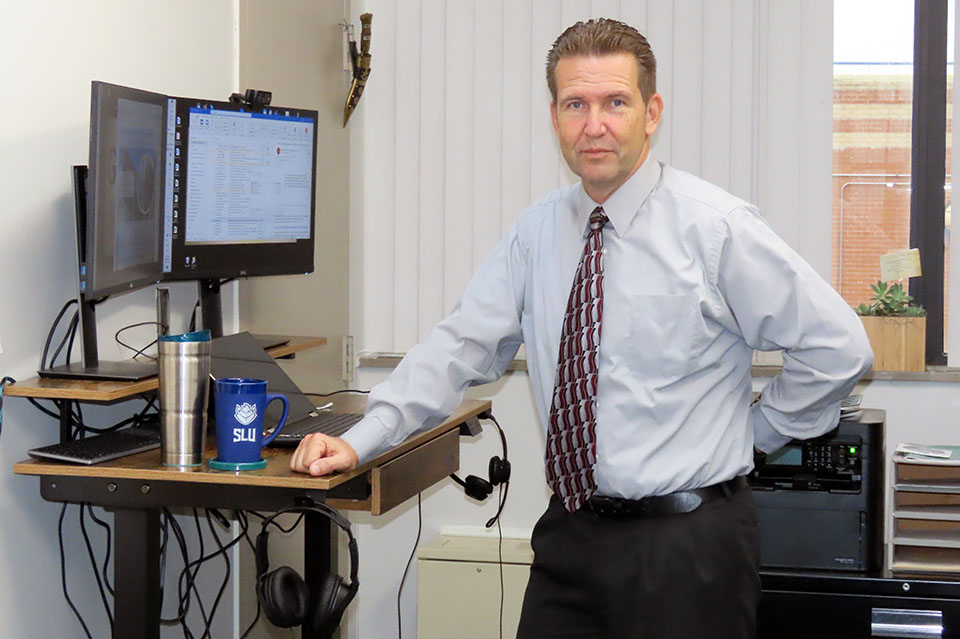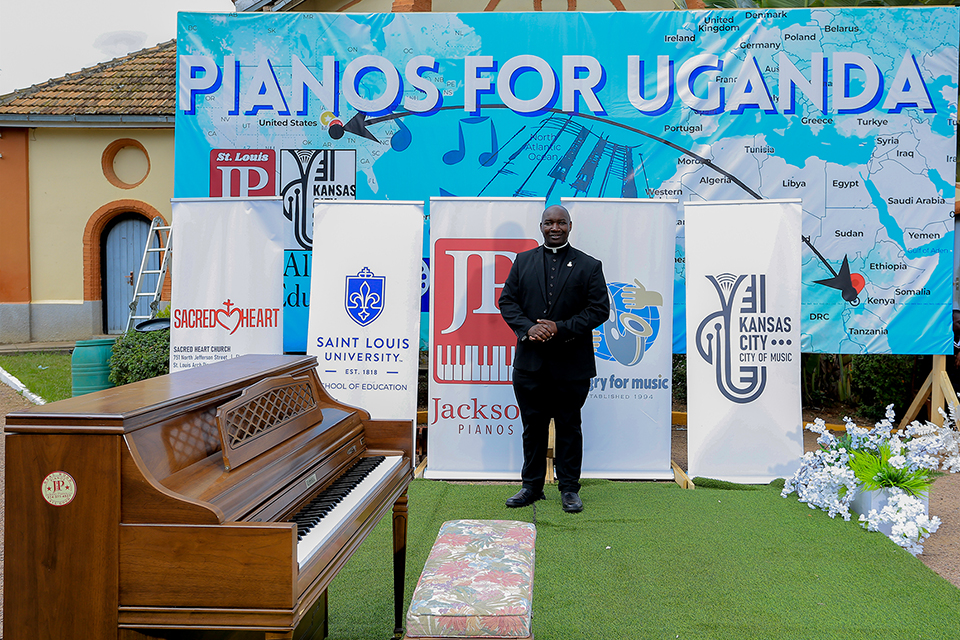SLU Research Explores Depression's Ripple Effect on Diabetes
07/11/2025
ST. LOUIS — A study conducted by researchers at Saint Louis University found that patients with depression were more likely to have uncontrolled diabetes over time and that depression contributes to a heightened economic burden to diabetes management.
The study, published in the Journal of Primary Care & Community Health, is based on commercial insurance claims data, tracking 1,196 patients with type 2 diabetes, and compares those with a clinical diagnosis of depression to those without.

SangNam Ahn, Ph.D. Submitted photo.
“The findings indicate a troubling link,” said SangNam Ahn, Ph.D., lead researcher and associate professor of health management and policy at SLU. “Patients with depression were more likely to have uncontrolled blood sugar levels over time compared to their non-depressed counterparts.”
Public health researchers often use insurance claim data as a window into health conditions' prevalence, severity and complexity. In addition to clarifying an illness’s cost to health and quality of life, insurance data can illustrate a disease’s financial burden.
In the current study, researchers examined claims data in Texas from a large commercial insurer between 2016 and 2019. They found that individuals with both depression and uncontrolled type 2 diabetes levels faced $2,037 higher total medical costs, $494 higher diabetes-related costs, and $336 higher outpatient costs compared to those without these conditions.
“We found that individuals with depression in the early years of our study were significantly more likely to have uncontrolled A1C levels a few years later,” Ahn said. “This could potentially be driven by depression and related difficulty adhering to diabetes treatment recommendations.”
Interestingly, the researchers note that depression and diabetes share similar biological origins. Both illnesses are marked by the overactivation of innate immunity, which can lead to an inflammatory response and dysregulation of the hypothalamic-pituitary-adrenal (HPA) axis. This, in turn, may cause higher cortisol levels, decreasing insulin sensitivity. Chronically high cortisol levels, present in 50% of those with depression, may contribute to the development of diabetes. In addition, unhealthy eating and a lack of exercise may play a role in both illnesses.
And, while the study examines impacts on those with commercial health insurance, Ahn notes that the health and economic burdens of co-existing diabetes and depression are intensified for the uninsured. For those without insurance, limited access to routine care often results in greater use of emergency services and delayed treatment, further raising systemic costs and worsening health outcomes.
Ahn said the separation of mental and physical health care and reactive reimbursement structures that discourage early intervention are gaps that lead to fragmented care and higher long-term costs. He advocates integrating mental health into chronic disease care through collaborative care models and expanded reimbursement for depression screening and treatment. Key steps include increasing access to health care, investing in community mental health infrastructure, and improving telehealth access.
Other study authors include McKenzie Beck and Wan-Ling Hsu, Saint Louis University College for Public Health and Social Justice Department of Health Policy and Management, Saint Louis, MO; Gang Han, Samuel D. Towne, Jr., Matthew Lee Smith and Marcia G. Ory, Texas A&M University School of Public Health Department of Health Behavior, College Station, Texas.
The study was funded in part by a grant from Blue Cross and Blue Shield of Texas (Grant number 23-468611) to establish a Rural Health Moonshot Program at Texas A&M Health Science Center. The funders had no role in study design, data collection and analysis, publication decisions, or manuscript preparation.
About Saint Louis University
Founded in 1818, Saint Louis University is one of the nation’s oldest and most prestigious Catholic research institutions. Rooted in Jesuit values and its pioneering history as the first university west of the Mississippi River, SLU offers more than 15,300 students a rigorous, transformative education that challenges and prepares them to make the world a better place. As a nationally recognized leader in research and innovation, SLU is an R1 research university, advancing groundbreaking, life-changing discoveries that promote the greater good.
Latest Newslink
- SLU to Host Pope Leo Series on AI and the Social Teaching of the ChurchSaint Louis University is launching a year-long series on AI and the social teaching of the Catholic Church. The Pope Leo Series on AI and the Social Teachings of the Church is hosted by SLU’s Catholic Studies Center and will feature a monthly panel on AI and a different facet of social teaching. Panels will include a mix of academic experts.
- Demchenko Named American Chemical Society FellowAlexei Demchenko, Ph.D., chemistry department chair, has been named an American Chemical Society Fellow for 2025. ACS fellows are members of the society who have "shown outstanding achievements in and contributions to science, the chemistry profession, and the society." This year, 36 members were named.
- James H. Korn, Ph.D.: 1938-2025James H. Korn, Ph.D., emeritus professor of psychology, died July 17, 2025. He was 87. Korn was a long-time professor at SLU. In 2006, the University established the James H. Korn Scholarship of Teaching and Learning Award in recognition of his many contributions to the research on teaching and learning.
- New Full-Time Faculty Members Join Saint Louis UniversitySaint Louis University has many new full-time faculty members joining the University this year. Check out the list of who is new at SLU.
- SLU Welcomes Home Newest Billikens at ConvocationThe newest Billikens, including new President Edward Feser, Ph.D., took part in the New Student Convocation and Family Welcome on Saturday morning inside Chaifetz Arena. The ceremony is designed to be one of the first opportunities for the new class of Billikens to develop a sense of cohesion and identity. Members of the SLU community shared how they serve a higher purpose and seek the greater good.
- SLU Doctoral Student Connects Ugandan Students With Pianos, Other Musical InstrumentsFr. Thomas Sserwadda, a doctoral student studying higher education administration at Saint Louis University, sent musical instruments to the Bukalasa Minor Seminary in Masaka Diocese, Uganda.













